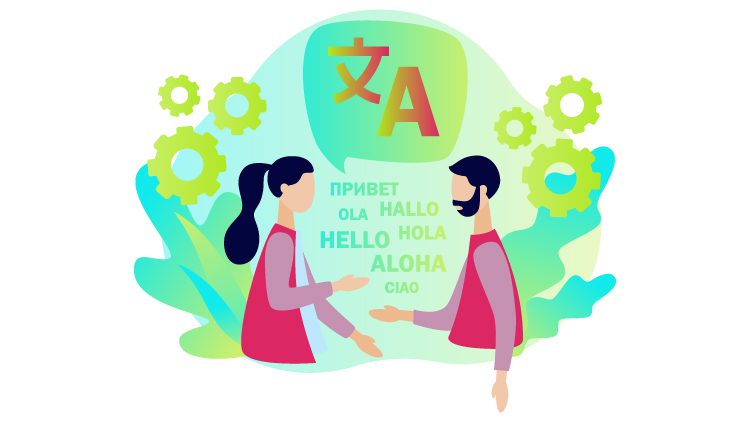
Legal Interpreting Service
Legal Interpreting Service
There are many tasks involved in legal interpreting work, and they all can be complex. A legal interpreter can help to simplify complex tasks. For example, a court interpreter has many tasks to complete in order to maintain cross-cultural or cross-linguistic equivalence. As a representative of languages and cultures, a court or legal interpreter helps to determine the outcome of legal proceedings. It can lead to communication failure or success. Legal Interpretation Services can simplify the work process, accomplish the tasks and offer translation services to clients.
Requirement for Work
It is not easy to interpret in court. It is difficult to interpret in court because there is no place where an interpreter can comfortably work. Clients are often unable to communicate clearly or fluently. They also have anxiety and fear that can cause them to be confused. This job is very demanding as the interpreter must maintain impartiality and control over the content. Some important factors that are required for Expert legal matters are accurate translation, analyzing the extensive history, criminal history investigation to reach conclusions.
This is difficult because clients often view the interpreter as a friend since they speak the same language. The client believes that the qualified interpreter understands his or her side. Professional interpreters can simplify the work process and understand it with ease.
A court interpreter is a single person and the amount of time they work depends on how much time the client has to appear in court. The work is continuous unlike conference interpreting, where one person can take over the interpreting duties while the other takes a break.

A court interpreter isn’t limited to just interpretation. The court interpreter is involved in all aspects of the legal process, usually, from the moment, the client is interviewed following the arrest. This can sometimes take place during unreasonably long hours to face Challenging situations.
Proper communication is essential in a multiracial society such as the United States, where thousands of people speak many different languages. It is crucial to communicate accurately with a person who cannot speak their native language in order to avoid any misinterpretation by the judge, defendants, and lawyers. This will ensure fairness and avoid confusion between the jury, prosecutors, and lawyers.

Insufficient Legal Interpreters
Legal interpreting jobs are very strict. This is why there are few legal interpreters in the U.S. The number of languages spoken in the U.S. is also increasing. The U.S. District Court Orlando has 115 contract interpreters. They can speak Spanish, Mandarin, Russian and Portuguese.
They may need to hire interpreters or legal interpreters in other parts of the U.S. for certain defendants who speak less common languages like Igbo, K’iche’, and Wayuu.
They have sufficient legal interpreters in Manhattan’s Southern District of New York. They did have to find Mandingo-speaking interpreters at one point. Paula Gold, chief of district interpreters, stated that she had contracted two interpreters who could speak the language because the trial was long. The trial was complicated because only one of the interpreters could speak the Mandingo dialect properly, so he did all the interpreting.
The National Court Interpreter Database had only 3,600 registered interpreters in fiscal 2016. They spoke over 180 languages, of which 120 were frequently used by courts. They were mostly contractors. 96% of all requests for Spanish interpreters were made. The broad range of Judiciary employed approximately 100 Spanish interpreters.
Certification and Proficiency Exams
Achieving certification as a legal interpreter requires more than just fluency in a target language. Candidates must meet specific basic requirements and undergo thorough training to understand legal terms and legal concepts. The application for certification typically involves a combination of written and oral exams that test both their theoretical knowledge and practical interpreting skills.
The oral proficiency exam is a critical component of the certification process. This exam assesses the candidate’s ability to interpret in a variety of legal situations, ensuring they can handle the complexities of the courtroom environment. Candidates must demonstrate their ability to maintain accuracy and impartiality, even under pressure, to pass these stringent tests.
In addition to exams, certified interpreters must often participate in continuous education to keep their skills sharp and stay informed about new developments in the legal field. This ongoing learning process includes attending workshops, studying new legal theories, and engaging with legal scholars. By maintaining high standards of proficiency, certified interpreters ensure they provide the best possible service to the legal system.
Use of Dominant Languages in Courts
Based on the number and complexity of language requests, these are the top 10 most-requested languages in FY 2016.
- Spanish – 254,736
- Mandarin – 1,640
- Serbian/Croatian/Bosnian – 952
- Russian – 950
- Portuguese – 835
- Arabic – 815
- Cantonese – 538
- Korean – 403
- Vietnamese – 360
- Romanian – 340
The U.S. Judiciary offers Spanish interpreting certification exams due to the high demand. Federal judges make the final decision on appointing a court interpreter. However, the law requires courts to use certified Spanish interpreters whenever they can and linguistic experts.
Challenging Test
Because of the constantly changing requirements and situations, certification tests for court interpreters can be difficult. Regular reviews by the Judiciary ensure that the examination process is both fair and cost-effective. The judging team consisted of three members and graded the certification exams for certification of Interpreters. Offering Professional services to clients on daily basis or regularly along with Legal translation processes. It makes it easy to deal with current clients and upcoming clients To reduce travel costs, candidates’ test answers are now digitally recorded and sent electronically to exam reviewers.
Why Court Interpreters Are Important
The legal interpreting profession and law firms demand a lot from interpreters. Interpreters must be able to accurately capture complex and unscripted legal procedures in two languages. Interpreting is done in real-time, which means it is simultaneous. The interpreter renders the English translation in the defendant’s native language immediately after the English is spoken. The interpreter will switch to consecutive interpreting mode when the defendant speaks. He or she may inject English interpretations occasionally.
This is how complex legal interpreting can be. The languages are often not compatible so court interpreters must create extensive glossaries in both languages. Because errors can disrupt court proceedings and cause confusion, it is important that the interpreter does not make any.

Legal interpreters need to have exceptional skills in both languages and are linguistic experts. They must also be bilingual. They must be able to take notes and not get emotionally attached to either party. They must maintain transparency and accuracy in all interactions. They are prohibited from summarizing, changing, or censoring any information they hear. Even if they hear incendiary or embarrassing statements, or to deal with challenging Situations legal interpreters must render all information. They should not alter or soften the meaning of any statement.
For justice to be delivered fairly, the work of interpreters is crucial. They must prepare for trials and do their job well. Access to justice for those with limited English proficiency is possible by having a physical and linguistic presence.
It is important that interpreters have a good understanding of the criminal procedure and the justice system.
The Institute of Linguists in the UK offers a Diploma Program in Public Sector Interpretation. The program requires that the interpreter be a specialist in one of three areas: law, local government, or health. This diploma is highly valued because it guarantees that the interpreter has sufficient experience and knowledge to deliver accurate interpretation. Makes them earn the badge of professional references from existing clients to new clients and help them to face challenging situation confidently.
The Role of Experienced Interpreters
Experienced interpreters play a crucial role in the legal realm, providing accurate and reliable legal communication between non-native speakers and the court. Their deep understanding of both the target language and the English language ensures that legal terms and legal concepts are conveyed precisely. This accuracy is vital to maintain the integrity of legal proceedings and to ensure that justice is served fairly.
In addition to their linguistic skills, experienced interpreters are well-versed in legal theory and legal pragmatics, allowing them to navigate complex legal situations with ease. They can bridge the gap between ordinary language and normative language, ensuring that the nuances of legal discourse are preserved. This expertise is particularly important when dealing with legal scholars and legal theorists, who often use specialized terminology.
The journey to becoming an experienced interpreter involves rigorous training and extensive background checks. Interpreters must pass oral exams and demonstrate their oral proficiency in both languages. These oral proficiency exams test their ability to interpret accurately and fluently in real-time, ensuring they can handle the pressures of the courtroom. Successful interpreters must also stay updated with current legal trends and terminology to remain effective in their roles.
The Role of Sign Language Interpreters
Sign language interpreters play a vital role in legal interpreting services, providing essential communication support for individuals who use sign language as their primary mode of communication. Unlike spoken language interpreters, sign language interpreters must translate between a natural language, such as American Sign Language (ASL), and the official language used in the courtroom, typically English. This requires a deep understanding of the linguistic and cultural nuances of both languages to ensure accurate and effective communication.
The complexities of interpreting in a legal context are amplified for sign language interpreters due to the visual nature of their work. They must accurately convey not only the words but also the tone, intent, and nuances of the spoken language into sign language. This process involves interpreting legal jargon and complex legal concepts into a format that is understandable and accessible to deaf or hard-of-hearing clients. Additionally, sign language interpreters must be adept at managing the flow of communication, ensuring that the interpreted message is delivered in real-time without omitting critical information.
Continuous professional development is crucial for sign language interpreters working in legal settings. They must stay current with changes in legal terminology and procedures, as well as advancements in interpreting techniques. By maintaining high standards of proficiency and adhering to the ethical principles of confidentiality and impartiality, sign language interpreters ensure that individuals who rely on sign language have equal access to justice and can fully participate in legal proceedings.

Characteristics of Court and Legal Interpreters
All kinds of legal interpreting, whether in courtrooms or any Legal Matter or other settings such as prisons or immigration authorities, are considered part of court interpretation.
The activity’s primary purpose is to enable the client to participate in the proceedings. Interpreting allows claimants and adjudicating bodies to communicate with each other through interpretation. This gives them the confidence that they will have an effective exchange of messages and that the legal process will go smoothly.
Court interpreters are required to assist in legal cases that involve people with different literacy levels, cultural backgrounds, dealing with a variety of languages, and ages. They should have a broad knowledge of cultural elements and offer quality service. This makes them eligible for professional references for further cases and offers Advanced Language services. They should be able to comprehend colloquialisms, slang, and legal terminology.
They must adhere to their code. They are mediators and contribute to the bridge of language and communication in the courtroom.
They must uphold professional conduct, impartiality, and confidentiality, as part of their code.
1. Fidelity
They have a link between claimants, lawyers, and the adjudicating authority. This gives them the power to favor one side. It is crucial for interpreters to keep their word and fulfill their legal, professional, and moral obligations to communicate the message accurately, fully, and faithfully. They must preserve the original words in the source language without additions or deletions. They must also preserve all nonverbal elements, such as pauses or tone of voice. Sometimes, an interpreter will need to explain to the court nonverbal gestures and cultural aspects of the case, particularly if it is impossible to convey all parts of the statement.
2. Confidentiality
All information revealed during court proceedings must remain confidential, even if it is mentioned orally. There are some ways to deal with courtroom situations, and the situation in the courtroom should be kept confidential.
3. Impartiality
To ensure impartiality, interpreters must distance themselves from witnesses and other participants in the trial. They are forbidden from sharing personal opinions or judgments that could have an impact on the jury’s verdict. They must remain neutral at all times, and be focused on their task.
Court interpreters must be professional at all times. They must follow court protocol, properly address courtroom staff and sit or stand according to the law. They must appear on time, with the correct tone of voice and speed, and should interpret in court.
They should be prepared for the case as professionals by doing extensive research, acquiring knowledge, and reviewing the relevant terminology. If they are unable or unwilling to perform their task, they should inform all parties and withdraw from the court case. They should be prepared to deal with the tasks on daily basis.
Court interpreters must be champions of continuous learning to solve challenging situations. They should attend professional meetings, participate in workshops, and continuously update their skills. Professional references can help to connect to the right law firm. Therefore giving an amazing experience to the clients in civil matters, other cases in legal departments for current clients, and others.

FREQUENTLY ASKED QUESTIONS
Can you translate for someone in court?
An interpreter may be required if you attend a hearing or trial in another country. It is important that you have the correct qualifications and are familiar with the court’s language if you need an interpreter. An interpreter acts as an intermediary between the parties and is an independent third party. An interpreter is a person who can take notes and give legal advice. It is impossible to communicate with an interpreter in English in a courtroom.
An interpreter should be present at your trial for many reasons. You should feel at ease with your interpreter. You should speak both languages fluently and understand the legal terminology. An interpreter who is qualified will be impartial throughout the proceedings. If you are unsure whether an interpreter is available, ask the court. If you decide to bring your own interpreter to court, make sure they are professional and experienced. Avoid using minors.
Most counties have an interpreter available in the courtroom. If you request one, the judge will also use it. If you do need an interpreter, make sure they are fluent in both languages and not biased. This will let the judge know that you are a professional and that the language you use is common. It is best to consult an attorney in your local county if you are unsure.
How much does a court interpreter make?
A court interpreter’s salary varies depending on their experience and where they live. Federal courts are paid more than state courts. Overtime is also more expensive. Certified interpreters make an average salary of $418 per day and $226 per half-day. An average language specialist earns $202 per day or $111 for a half-day. The highest-paid professionals make more than $63,000 annually.
An annual salary for a full-time court interpreter is between $71,000 to $86,662 These salaries are slightly less than those of independent contractors or freelancers. The U.S. Bureau of Labor Statistics estimates that a certified court interpreter makes approximately $417 per day and $226 for half-day. Non-certified interpreters earn between $25,000 to $50,000 per year.
The salary of a court interpreter depends on their experience, location, and qualifications. A certified court interpreter in the federal system earns $418 per day or $226 for a half-day. A skilled interpreter who speaks English can earn around $211 per day or $111 per hour. A court interpreter does not have to earn a minimum or maximum salary.
A court interpreter earns an average of $47,000 annually. Although there are some state and federal employees available, the majority of court interpreters work for themselves. The former will mean that you are likely to be unemployed for long periods, while the latter will allow you to choose your assignments and travel wherever you want. You can find many full-time jobs in court interpreting.
What is a law interpreter?
You’re not the only one wondering what a legal translator does. Legal interpreters, despite their names, are one of the most important people working in a courtroom. They translate the spoken words during court proceedings and depositions. They are also able to work via telephone, video conference, and in interviews. This job isn’t glamorous but it’s extremely rewarding. You can even start immediately.
An interpreter for legal cases provides translation services in a variety of situations. They are responsible for connecting lawyers with adjudicating authorities. This is a demanding job that requires high levels of skill since many of these cases involve high-risk issues. They must, however, maintain fidelity and preserve the source language’s words, cultural gestures, and non-verbal elements. A law interpreter must also ensure accurate translations.
An interpreter for the law works with diverse clients. Many defendants can speak the same language as others, but not all. In this situation, an interpreter must have a good knowledge of the language. The interpreter must speak the defendant’s language in these cases. Sometimes, an interpreter is needed by a lawyer to help him make the right decision.
How do you become a court interpreter?
You can become a court interpreter in one of two ways. An interpreting workshop can be attended and you can then apply for an internship at a local court. Internships will give you the opportunity to improve your language skills and interpret and gain valuable experience. The application process takes approximately two months. Although there are many requirements to become a court interpreter you must also have great communication skills. It may take many years to complete the training required for this position.
You must be proficient in at least two languages before you can become a court translator. You should speak fluently in both English and another language such as Spanish. You can take classes in the second language if you are unable to speak English. To improve your skills, you can enroll in a professional translator certificate program. A university can award a degree to native speakers of any of these languages.
For court interpreters, a bachelor’s degree will be the most essential requirement. Students should learn a foreign language at high school and then continue their studies in college. You should choose English courses if you don’t know either language. It is recommended to obtain a bachelor’s degree with a focus on translation studies. This degree allows students the opportunity to focus on one language and learn grammar, pronunciation, diction.
What are the key responsibilities and challenges faced by legal interpreters in court settings?
Legal interpreters have a crucial role in ensuring accurate and effective communication in court settings. Their key responsibilities include:
- Maintaining Cross-Cultural and Cross-Linguistic Equivalence: Legal interpreters must accurately translate the spoken language of defendants, witnesses, and other parties in court, ensuring that nothing is lost in translation and that cultural nuances are respected.
- Ensuring Impartiality and Confidentiality: Interpreters must remain neutral, avoiding any personal bias or influence on the proceedings. They are also required to keep all information confidential, safeguarding the privacy and integrity of the legal process.
- Handling Complex Legal Terminology and Procedures: Legal interpreters need to be well-versed in legal jargon and procedures. They often create extensive glossaries and prepare thoroughly for each case to ensure precise interpretation.
- Working Under Challenging Conditions: Unlike conference interpreters who can take breaks, court interpreters often work continuously, sometimes for long hours, and must remain focused and accurate throughout.
- Dealing with Emotional and Stressful Situations: Interpreters must manage their own emotions and stress while dealing with clients who may be anxious, fearful, or confused. They must maintain composure and clarity to facilitate effective communication.
- Adapting to Various Dialects and Languages: With a growing number of languages spoken in the U.S., interpreters often need to handle requests for less common languages and dialects, sometimes requiring specialized knowledge or additional resources.
In summary, legal interpreters are essential for ensuring fair and accurate communication in court, bridging language barriers, and upholding the integrity of the legal process. Their work requires exceptional linguistic skills, cultural competence, and the ability to manage complex, high-pressure situations.

